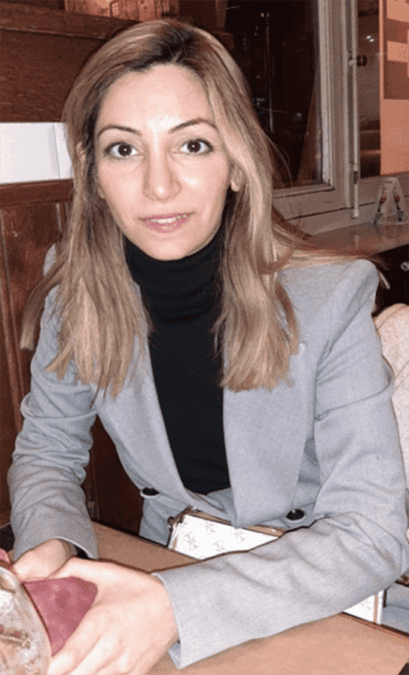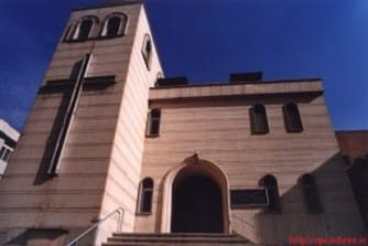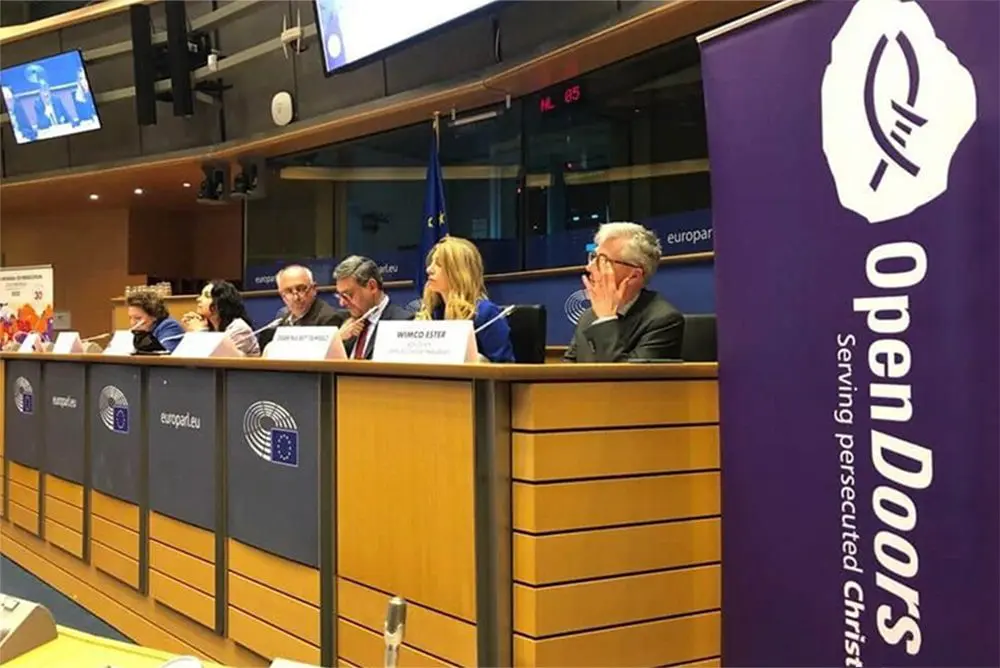The persecution of Christians in Iran was the focus of the presentation of the 2023 World Watch List of the Protestant NGO Open Doors yesterday, Thursday 25 January, at the European Parliament (EP).
According to their report, 360 million Christians around the world suffer high levels of persecution and discrimination for their faith, 5621 Christians were murdered and 2110 church buildings were attacked last year.
The event was hosted by MEP Peter Van Dalen and MEP Miriam Lexmann (EPP group).
Peter Van Dalen commented on the damning Open Doors report as follows:
“It is highly concerning to see that persecution of Christians is still increasing in
the world. It is therefore very important that in all its work on human rights,
the European Parliament does not overlook the right to freedom or religion or
belief! I am grateful for organisations like Open Doors who keep reminding
us of the urgency and importance of these matters.”MEP Peter Vandalen
MEP Nicola Beer (Renew Europe Group), one of the EP Vice-presidents, had a special address focusing on the positive and constructive role of religious communities in democratic societies and consequently the necessity to defend freedom of religion or belief.
Ms Dabrina Bet-Tamraz, a Protestant from the Assyrian ethnic minority in Iran, who is now living in Switzerland, had been invited to testify about the persecution of Christians in Iran, through the example of her own family.

When I was a teenager we were constantly under surveillance; we were bugged and there were spies in the church. We didn’t know
who we could trust. We were ready for anyone in the family to
be killed at any time as it had happened in many other Christian communities. At school, I was discriminated against by the teachers and the principal. I was stigmatized both as a Christian and as an Assyrian by the other students.
After the Shahrara Assyrian Church of my father was closed in 2009, I was arrested
many times to be interrogated about the activities of the members of our church.
I was kept in custody with no legal permit, with no female officer present but just
in male surroundings, which is stressing for a teenager. I was threatened of being
raped. I now feel safe in Switzerland but when Iranian Ministry of Intelligence
officers published an article on social media with my pictures and home address – encouraging Iranian men living in Switzerland to ‘pay me a visit’ – I had to move
to another house. Even outside Iran, we remain under threat for our life if
we reveal the human rights violations of the regime.“
For many years, Dabrina’s father, Pastor Victor Bet-Tamraz, and her mother, Shamiran Issavi Khabizeh were sharing their faith with Farsi-speaking Muslims, which is forbidden in Iran, and were training converts.

Pastor Victor Bet-Tamraz was officially recognised as a minister by the Iranian government and led the Shahrara Assyrian Pentecostal Church in Tehran for many years until the Interior Ministry closed it down in March 2009 for holding services in Farsi – it was then the last church in Iran to hold services in the language of the Iranian Muslims. The church was later allowed to reopen under a new leadership, with services conducted in Assyrian only. Pastor Victor Bet-Tamraz and his wife then moved into house church ministry, hosting meetings in their home.
Dabrina’s parents were arrested in 2014 but were released on bail. In 2016, they were sentenced to ten years in prison. Their appeal hearing was postponed several times until 2020. When it was obvious that the prison term would be maintained, they decided to leave Iran. They now live with their daughter who had fled to Switzerland in 2010.
In the meantime, she had studied Evangelical theology in the UK and she is now a pastor in a German-speaking church in Switzerland. Her campaign for religious freedom in Iran has taken her to the UN Human Rights Council in Geneva, to the second annual Ministerial to Advance Religious Freedom in Washington DC and to a UN General Assembly, apart from many other events.
At the European Parliament in Brussels, she called on the Iranian authorities to
“order the immediate and unconditional release of Christians detained on spurious
charges related to the practice of their faith and religious activities; and uphold the
right to freedom of religion or belief for every citizen, regardless of their ethnic or
linguistic group, including converts from other religions.”
She asked the international community, including the European Union, to hold Iran accountable for its mistreatment of religious minorities. She urged the Iranian authorities to uphold their obligation to ensure freedom of religion and belief for all their citizens in conformity with the international instruments they have signed and ratified.
MEP Miriam Lexmann, from Slovakia, a former Communist country, pointed at the anti-religious nature of the Marxist ideology imposed on her country for decades after WWII. She made a vibrant plea for freedom of conscience and belief, saying:

“Freedom of religion or belief is the cornerstone of all human rights. When religious freedom is attacked, all human rights are under threat. Fighting for religious
freedom is fighting for all human rights and for democracy. A number of
countries such as China, another Communist country, have developed some
very sophisticated methods to amputate parts of the religious freedom of their populations. I try to share my concerns with my colleagues of other political
groups in the Parliament but for various reasons it is difficult to open their minds.”
MEP Nicola Beer, from Germany, stressed that religious communities play a major role in our democratic countries, contribute to the stability of our societies and provide assistance to the most vulnerable persons through their caritative organizations.

“Fighting for freedom of religion or belief contributes to the defence of all human rights but quite often my colleagues at the Parliament forget religious freedom when they prioritize the human rights that should be defended,” she said. “The situation is getting worse and worse around the globe and it is important that people like Dabrina Bet-Tamraz testify about this deterioration. We have the privilege to freely decide and choose which religious or non-religious beliefs we want to adhere to. It is a privilege and a treasure that we should fully appreciate because in many countries thinking differently is perceived as a threat.”
During the debate with the numerous audience, MEP Peter Van Dalen was challenged about the efficiency of sanctions taken by the European Union. His answer was very convincing:

“Last year in April, the lawyer of a Christian couple in Pakistan called me for help because they had been on the death row for years on so-called blasphemy charges and they might be sentenced to death. It was decided to table an emergency resolution about their situation. The motion got a huge support and two weeks later, they were released, officially ‘for lack of evidence’. It shows that resolutions of the European Parliament do not remain unnoticed and can be very effective. Those two Christians could leave Pakistan and now live in a Western democratic country. Based on this success, I have just taken the initiative to send a letter to the EEAS and to Josep Borrell signed by eight MEPs to question the legitimacy of the commercial advantages attached to the GSP+ status, too generously granted to Pakistan and maintained despite the recurrent violations of religious freedom and human rights in Pakistan. Indeed, on 17 January, the National Assembly of Pakistan increased the punishment of insulting pious personalities of Islam, specifically family members of the prophet Muhammad, from three to ten years imprisonment.
Read more:
Hotspot of Christians persecution in 2022 highlighted in West Africa







